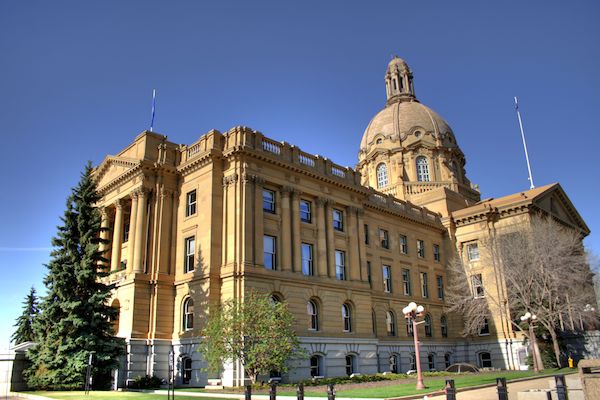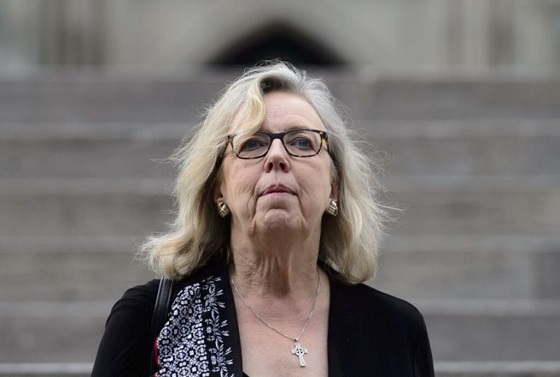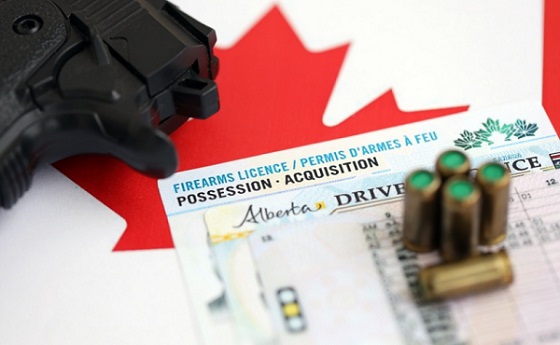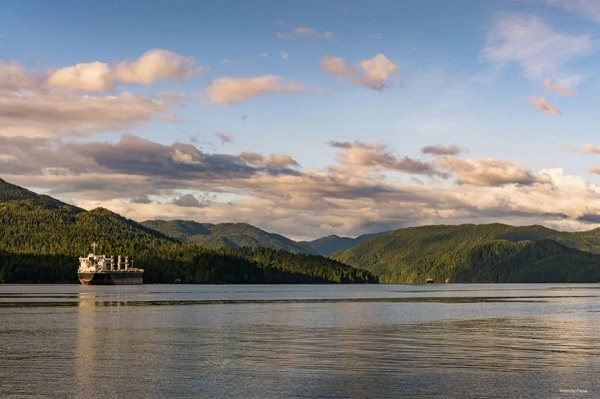Alberta
Province of Alberta offering third dose of Covid-19 vaccine to seniors living in care facilities

Third vaccine doses available Sept. 1
Starting Sept. 1, third doses of COVID-19 vaccine will be available for all seniors living in congregate care facilities and for immunocompromised Albertans.
Alberta’s government has always prioritized the care of our most vulnerable. Alberta was one of the first provinces to offer vaccines to seniors in congregate care facilities and to immunocompromised Albertans.
Receiving a third dose will boost immunity levels and improve protection for all seniors living in congregate care facilities and individuals with compromised immune systems.
In addition, mRNA doses will be made available to Albertans who are travelling to a jurisdiction that does not accept visitors who have been vaccinated with Covishield/AstraZeneca or mixed doses.
“We remain committed to protecting Albertans from COVID-19, and vaccinations are the safest and most effective way to offer this protection. We have always relied on the latest research to guide our decision-making, and now that evidence shows immunocompromised individuals and seniors in congregate care will benefit from getting a third dose, we are pleased to provide them.”
“The data shows that additional doses will offer stronger protection for immunocompromised individuals and older Albertans living in supportive living facilities. Just as we offered these individuals earlier access to COVID-19 vaccines and a shorter four-week interval between doses, we will continue to work to protect all Albertans as new data emerges. However, the best way for us to protect each other is still for as many people as possible to be fully immunized.”
Seniors living in congregate care
Seniors living in congregate care facilities will be eligible to receive their third dose approximately five months after their second dose. Eligible residents will receive their third doses at their facilities.
Immunocompromising conditions
Immunocompromising conditions that qualify for an additional dose at least eight weeks after their second dose include:
- Transplant recipients, including solid organ transplants and hematopoietic stem cell transplants.
- Individuals with chronic kidney disease who are receiving regular dialysis.
- Individuals in active cancer treatment (chemotherapy, immunotherapy or targeted therapies) excluding those receiving only hormonal therapy, radiation therapy or surgery.
- Individuals on certain medications for autoimmune diseases, including rituximab, ocrelizumab and ofatumumab.
Travel vaccinations
Albertans with two valid doses of any vaccine used in Alberta are considered to have received a complete series.
However, some jurisdictions outside of Canada have indicated that they will not accept visitors who have been vaccinated with Covishield/AstraZeneca or mixed doses.
Additional mRNA doses will be made available at least 28 days after a second dose to Albertans who are travelling to a jurisdiction that does not accept visitors who have been vaccinated with Covishield/AstraZeneca or mixed doses.
Quick facts
- There are 118,000 individuals who would be eligible for an additional COVID-19 vaccine dose based on being immunocompromised (approximately 60,000 Albertans) and those living in seniors supportive living (approximately 58,000 Albertans).
- To date, 77.9 per cent of Albertans aged 12-plus have received at least one dose of COVID-19 vaccine and 69.7 per cent have received two doses.
- Immunizations records are available through MyHealth Records. Albertans who are travelling can also use their hard copy record that was provided at the time of vaccination.
Alberta
Premier Smith: Canadians support agreement between Alberta and Ottawa and the major economic opportunities it could unlock for the benefit of all

From Energy Now
By Premier Danielle Smith
Get the Latest Canadian Focused Energy News Delivered to You! It’s FREE: Quick Sign-Up Here
If Canada wants to lead global energy security efforts, build out sovereign AI infrastructure, increase funding to social programs and national defence and expand trade to new markets, we must unleash the full potential of our vast natural resources and embrace our role as a global energy superpower.
The Alberta-Ottawa Energy agreement is the first step in accomplishing all of these critical objectives.
Recent polling shows that a majority of Canadians are supportive of this agreement and the major economic opportunities it could unlock for the benefit of all Canadians.
As a nation we must embrace two important realities: First, global demand for oil is increasing and second, Canada needs to generate more revenue to address its fiscal challenges.
Nations around the world — including Korea, Japan, India, Taiwan and China in Asia as well as various European nations — continue to ask for Canadian energy. We are perfectly positioned to meet those needs and lead global energy security efforts.
Our heavy oil is not only abundant, it’s responsibly developed, geopolitically stable and backed by decades of proven supply.
If we want to pay down our debt, increase funding to social programs and meet our NATO defence spending commitments, then we need to generate more revenue. And the best way to do so is to leverage our vast natural resources.
At today’s prices, Alberta’s proven oil and gas reserves represent trillions in value.
It’s not just a number; it’s a generational opportunity for Alberta and Canada to secure prosperity and invest in the future of our communities. But to unlock the full potential of this resource, we need the infrastructure to match our ambition.
There is one nation-building project that stands above all others in its ability to deliver economic benefits to Canada — a new bitumen pipeline to Asian markets.
The energy agreement signed on Nov. 27 includes a clear path to the construction of a one-million-plus barrel-per-day bitumen pipeline, with Indigenous co-ownership, that can ensure our province and country are no longer dependent on just one customer to buy our most valuable resource.
Indigenous co-ownership also provide millions in revenue to communities along the route of the project to the northwest coast, contributing toward long-lasting prosperity for their people.
The agreement also recognizes that we can increase oil and gas production while reducing our emissions.
The removal of the oil and gas emissions cap will allow our energy producers to grow and thrive again and the suspension of the federal net-zero power regulations in Alberta will open to doors to major AI data-centre investment.
It also means that Alberta will be a world leader in the development and implementation of emissions-reduction infrastructure — particularly in carbon capture utilization and storage.
The agreement will see Alberta work together with our federal partners and the Pathways companies to commence and complete the world’s largest carbon capture, utilization and storage infrastructure project.
This would make Alberta heavy oil the lowest intensity barrel on the market and displace millions of barrels of heavier-emitting fuels around the globe.
We’re sending a clear message to investors across the world: Alberta and Canada are leaders, not just in oil and gas, but in the innovation and technologies that are cutting per barrel emissions even as we ramp up production.
Where we are going — and where we intend to go with more frequency — is east, west, north and south, across oceans and around the globe. We have the energy other countries need, and will continue to need, for decades to come.
However, this agreement is just the first step in this journey. There is much hard work ahead of us. Trust must be built and earned in this partnership as we move through the next steps of this process.
But it’s very encouraging that Prime Minister Mark Carney has made it clear he is willing to work with Alberta’s government to accomplish our shared goal of making Canada an energy superpower.
That is something we have not seen from a Canadian prime minister in more than a decade.
Together, in good faith, Alberta and Ottawa have taken the first step towards making Canada a global energy superpower for benefit of all Canadians.
Danielle Smith is the Premier of Alberta
Alberta
A Memorandum of Understanding that no Canadian can understand

From the Fraser Institute
The federal and Alberta governments recently released their much-anticipated Memorandum of Understanding (MOU) outlining what it will take to build a pipeline from Alberta, through British Columbia, to tidewater to get more of our oil to markets beyond the United States.
This was great news, according to most in the media: “Ottawa-Alberta deal clears hurdles for West Coast pipeline,” was the top headline on the Globe and Mail’s website, “Carney inks new energy deal with Alberta, paving way to new pipeline” according to the National Post.
And the reaction from the political class? Well, former federal environment minister Steven Guilbeault resigned from Prime Minister Carney’s cabinet, perhaps positively indicating that this agreement might actually produce a new pipeline. Jason Kenney, a former Alberta premier and Harper government cabinet minister, congratulated Prime Minister Carney and Premier Smith on an “historic agreement.” Even Alberta NDP Leader Naheed Nenshi called the MOU “a positive step for our energy future.”
Finally, as Prime Minister Carney promised, Canada might build critical infrastructure “at a speed and scale not seen in generations.”
Given this seemingly great news, I eagerly read the six-page Memorandum of Understanding. Then I read it again and again. Each time, my enthusiasm and understanding diminished rapidly. By the fourth reading, the only objective conclusion I could reach was not that a pipeline would finally be built, but rather that only governments could write an MOU that no Canadian could understand.
The MOU is utterly incoherent. Go ahead, read it for yourself online. It’s only six pages. Here are a few examples.
The agreement states that, “Canada and Alberta agree that the approval, commencement and continued construction of the bitumen pipeline is a prerequisite to the Pathways project.” Then on the next line, “Canada and Alberta agree that the Pathways Project is also a prerequisite to the approval, commencement and continued construction of the bitumen pipeline.”
Two things, of course, cannot logically be prerequisites for each other.
But worry not, under the MOU, Alberta and Ottawa will appoint an “Implementation Committee” to deliver “outcomes” (this is from a federal government that just created the “Major Project Office” to get major projects approved and constructed) including “Determining the means by which Alberta can submit its pipeline application to the Major Projects Office on or before July 1, 2026.”
What does “Determining the means” even mean?
What’s worse is that under the MOU, the application for this pipeline project must be “ready to submit to the Major Projects Office on or before July 1, 2026.” Then it could be another two years (or until 2028) before Ottawa approves the pipeline project. But the MOU states the Pathways Project is to be built in stages, starting in 2027. And that takes us back to the circular reasoning of the prerequisites noted above.
Other conditions needed to move forward include:
The private sector must construct and finance the pipeline. Serious question: which private-sector firm would take this risk? And does the Alberta government plan to indemnify the company against these risks?
Indigenous Peoples must co-own the pipeline project.
Alberta must collaborate with B.C. to ensure British Columbians get a cut or “share substantial economic and financial benefits of the proposed pipeline” in MOU speak.
None of this, of course, addresses the major issue in our country—that is, investors lack clarity on timelines and certainty about project approvals. The Carney government established the Major Project Office to fast-track project approvals and provide greater certainty. Of the 11 project “winners” the federal government has already picked, most either already had approvals or are already at an advanced stage in the process. And one of the most important nation-building projects—a pipeline to get our oil to tidewater—hasn’t even been referred to the Major Project Office.
What message does all this send to the investment community? Have we made it easier to get projects approved? No. Have we made things clearer? No. Business investment in Canada has fallen off a cliff and is down 25 per cent per worker since 2014. We’ve seen a massive outflow of capital from the country, more than $388 billion since 2014.
To change this, Canada needs clear rules and certain timelines for project approvals. Not an opaque Memorandum of Understanding.
-

 National20 hours ago
National20 hours agoMedia bound to pay the price for selling their freedom to (selectively) offend
-

 Bruce Dowbiggin19 hours ago
Bruce Dowbiggin19 hours agoSometimes An Ingrate Nation Pt. 2: The Great One Makes His Choice
-

 Business8 hours ago
Business8 hours agoRecent price declines don’t solve Toronto’s housing affordability crisis
-

 Daily Caller9 hours ago
Daily Caller9 hours agoTech Mogul Gives $6 Billion To 25 Million Kids To Boost Trump Investment Accounts
-

 Business7 hours ago
Business7 hours agoOttawa’s gun ‘buyback’ program will cost billions—and for no good reason
-

 Energy2 days ago
Energy2 days agoELZABETH MAY HAS IT WRONG: An Alberta to Prince Rupert Oil Pipeline Will Contribute to Greater Global Oil Tanker Safety
-

 National2 days ago
National2 days agoAlberta will use provincial laws to stop Canadian gov’t from trying to confiscate legal firearms
-

 Energy10 hours ago
Energy10 hours agoThe Trickster Politics of the Tanker Ban are Hiding a Much Bigger Reckoning for B.C.




